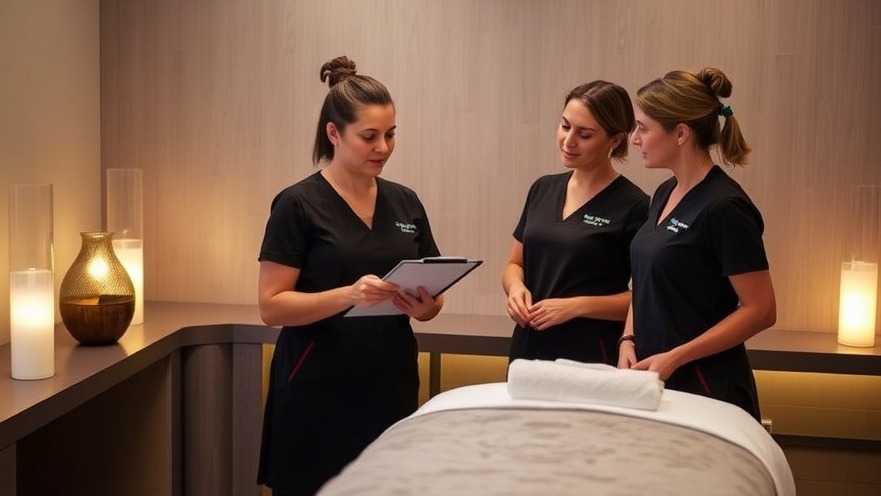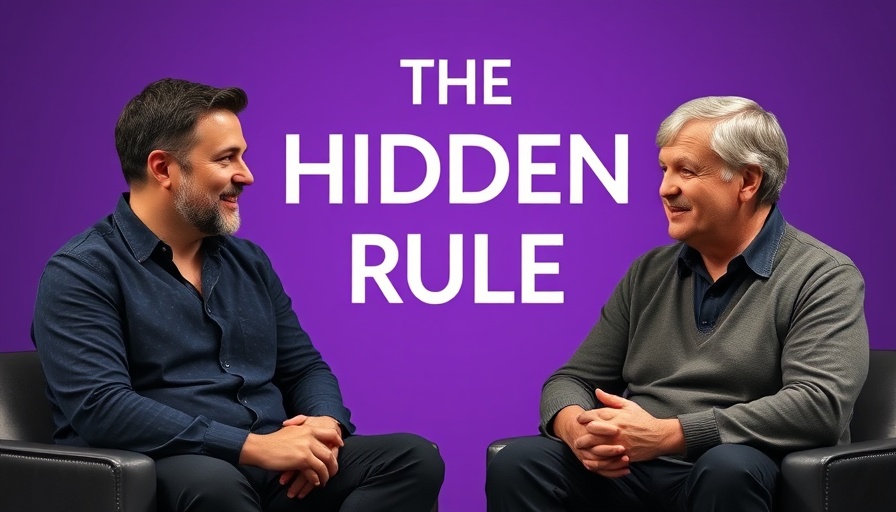
Embracing Mistakes as Opportunities for Growth
In any leadership role—especially within the spa and wellness industry—making mistakes can feel like a public spotlight you didn’t ask for.
Whether it’s a client experience that didn’t meet expectations, a hiring misstep, or a failed promotion, errors can feel personal.
Kara Ronin's candid admission of a recent public mistake reminds us that even the most diligent leaders stumble. What sets great leaders apart isn’t how perfect they are—it’s how they respond when things go wrong.
In his video, “Rebound from a Failure FAST! Tips for Leaders in Business,” Kara breaks down how to turn failure into forward momentum.
His message hits home for spa professionals, who juggle not just logistics and staff, but also client emotions, self-care missions, and reputational expectations.
This article takes those insights further, pairing Kara's experience with lessons from other respected voices in leadership and wellness.
In 'Rebound from a Failure FAST! Tips for Leaders in Business,' the discussion dives into how to effectively turn mistakes into learning moments, providing insightful takeaways that we’re expanding on in this article.
The Power of Constructive Feedback
Feedback is often mistaken for criticism—but when offered thoughtfully, it’s one of the most powerful tools in a leader’s toolbox.
In a spa setting, missteps might include misbooked appointments, inconsistent treatment experiences, or communication breakdowns between staff.
While it’s tempting to sweep things under the rug to “keep the peace,” doing so silently lets confusion and tension grow.
Dr. Tasha Eurich, organizational psychologist and author of Insight, emphasizes that:
“The most successful people are those who are brave enough to seek feedback that tells them the truth.”
For spa leaders, that means building a workplace culture where team members feel safe to speak up. Create routines—like weekly check-ins or feedback circles—where suggestions and concerns are normalized. Use gentle, kind language, and lead with curiosity:
“What would you do differently next time?”
“How did that experience feel from your side?”
This fosters resilience, not defensiveness.
Shifting the Narrative Around Failure
Many spa professionals are natural caregivers. Their perfectionism is born from wanting to give the best possible experience. But perfectionism can be paralyzing, especially when something goes wrong.
Kara Ronin reminds us that even top business leaders have failed—and failed publicly. But what they gained was wisdom. Mistakes, when analyzed without ego, offer precise maps of what needs to change.
Brené Brown, a leading voice in vulnerability and courage, writes:
“You can choose courage or you can choose comfort, but you cannot have both.”
Spa managers can model courage by openly sharing a mistake they’ve made and how they learned from it. For example, maybe a treatment menu was rolled out too fast and confused clients.
Talking about what went wrong and how it’s being fixed invites the team into the solution—not the blame.

Understanding Different Responses to Mistakes
Not all mistakes are treated equally, and not all teams know how to respond when one occurs. Kara outlines three types of reactions:
Supportive feedback
Avoidant silence
Public embarrassment
In spa environments, silence can be just as damaging as criticism. A team member may repeat the same mistake simply because no one told them they were off track.
Kim Scott, author of Radical Candor, explains:
“When you care personally and challenge directly, you build trust—and growth.”
If you notice a teammate quietly avoiding confrontation or brushing off accountability, consider asking:
“Would it help if we looked at that moment together and explored what to improve?”
The goal isn’t perfection. It’s awareness.
Taking Ownership and Learning from Mistakes
True leadership means going first. When a leader owns a mistake, it sets the tone for the entire team.
Imagine this: a front desk coordinator double-books a massage therapist. Instead of blaming them, the spa director says, “I should have clarified the booking process better—let’s fix it together.” That’s ownership. That’s leadership.
Simon Sinek, author of Leaders Eat Last, shares:
“Leadership is not about being in charge. It is about taking care of those in your charge.”
When your team sees you take responsibility, they’ll feel safer to do the same. That safety is the foundation for innovation, improvement, and loyalty.

Creating an Environment of Support and Understanding
Owning mistakes is one thing—transforming them into growth is another. Spa leaders can structure this transformation by baking it into their culture.
Here’s how:
Hold monthly “Lessons Learned” meetings where staff share one thing that didn’t go as planned and what they learned.
Start team huddles with a “growth gratitude” moment, spotlighting how someone handled a tough situation well.
Encourage cross-training to give staff room to try new roles and learn from unfamiliar challenges.
Dr. Amy Edmondson, who coined the term psychological safety, emphasizes:
“People perform better when they know mistakes won’t define them.”
This kind of environment doesn’t just make the workplace better. It makes your spa a place where employees thrive and clients feel that energy in every interaction.
Recognizing the Emotional Impact of Mistakes
Leaders often forget: mistakes don’t just bruise reputation—they bruise emotion.
In wellness spaces, where people are expected to be calm, composed, and client-ready, mistakes can trigger self-doubt. That energy can spill over into treatments and team dynamics.
Dr. Kristin Neff, a self-compassion expert, says:
“When we treat ourselves kindly in moments of failure, we build the strength to try again.”
Spa leaders can quietly ask, “How are you feeling about what happened?” after a staff error. Let team members know that they are more than their worst moment. Emotional repair is just as important as procedural correction.

Inspiration for Leaders and Spa Professionals
To help shift perspective, Kara Ronin recommends Mindset by Carol Dweck. This book lays out the difference between a fixed mindset (where failure is a verdict) and a growth mindset (where failure is data).
Dweck writes:
“Failure is information—we label it failure, but it’s really about learning.”
Spa leaders can share insights from this book during staff development sessions or post quotes on the break room board. Little reminders like “progress over perfection” or “every expert was once a beginner” can shift culture over time.
Let’s Normalize Growth Through Mistakes
Every spa has them—awkward moments, tough client interactions, launch flops, or ideas that just didn’t stick. What defines your culture is not if these things happen, but how you respond when they do.
Start here:
Celebrate resilience.
Talk openly about what you’ve learned.
Encourage your team to see mistakes as detours—not dead ends.
Now it’s your turn.
How do you turn mistakes into momentum in your spa? What’s one lesson your team learned the hard way—but is better for it?
Share your stories in the comments. Let’s help each other grow, one mistake at a time.
 Add Row
Add Row  Add
Add 



 Add Row
Add Row  Add
Add
Write A Comment